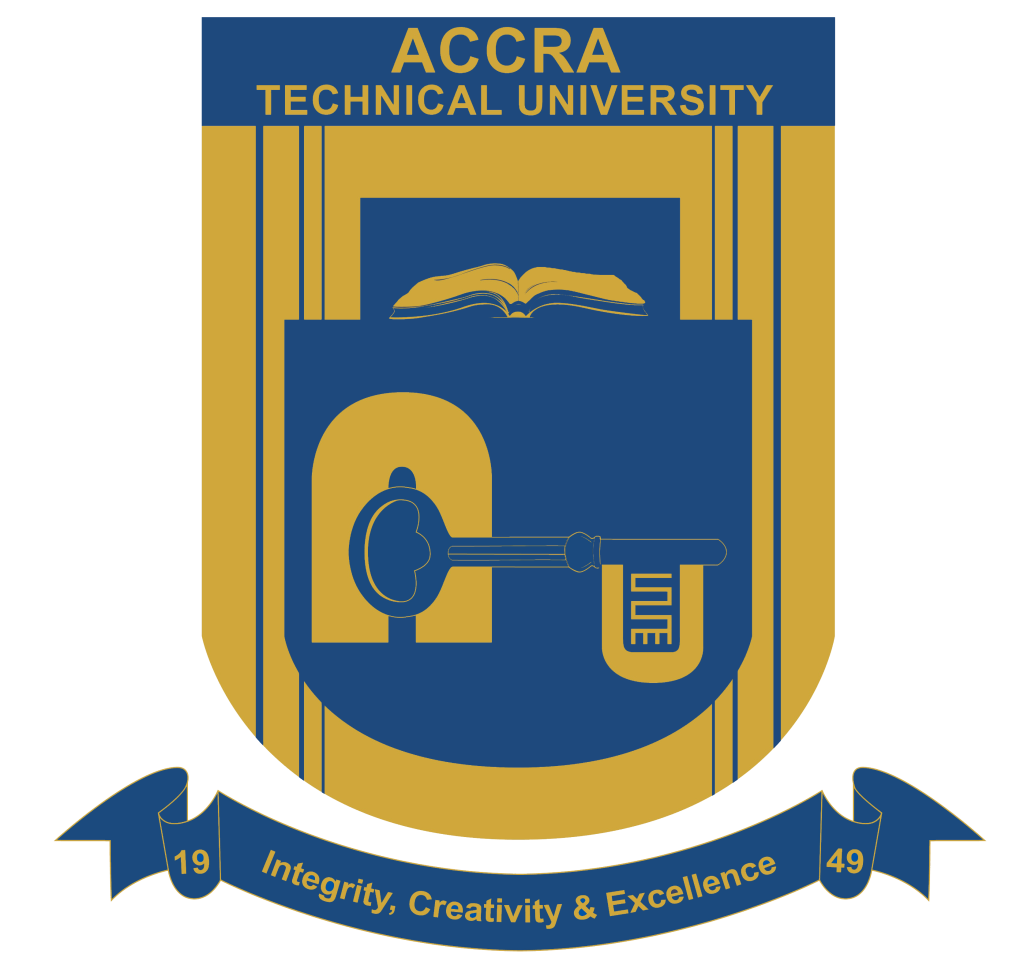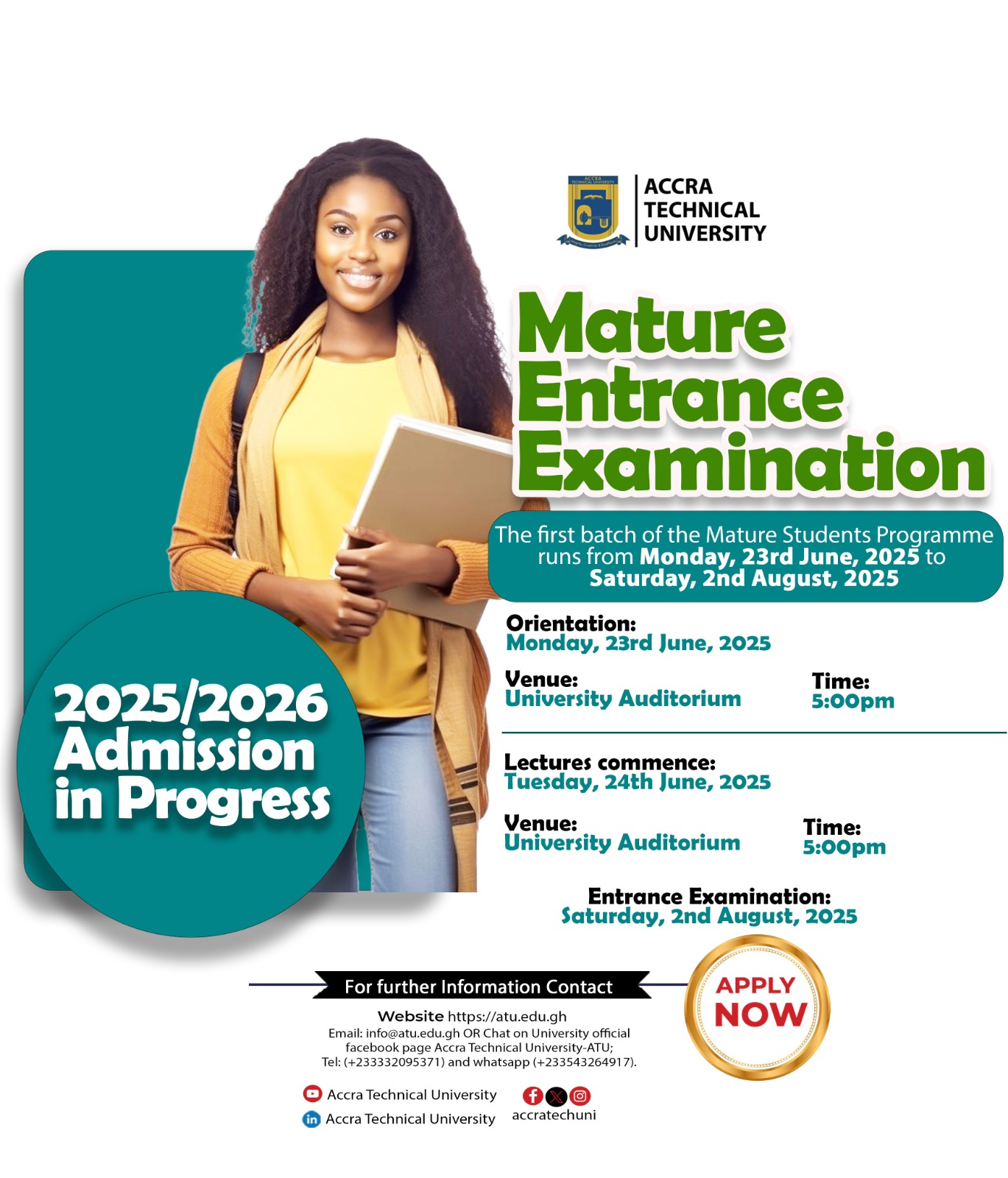- Apply Online
- iCampus
- Pay Fees
- LMS
- HelpDesk
- Staff
- Alumni
- Contact Us
- AHRIF
- ATU @ 75
Faculty of Applied Sciences
Overview of the Faculty
Formerly the School of Applied Sciences and Arts, the Faculty of Applied Sciences provides a congenial learning, teaching and research environment capable of producing middle-level specialists in science and commerce-related courses ready to address contemporary industrial and societal challenges in the field.
The faculty is focused on the transfer of existing scientific knowledge to practical applications, like technology or inventions. The faculty’s approach to tuition is a holistic one; we complement significant practical work with theoretical scientific processes and knowledge as the means of achieving a specific practical or useful result.
The faculty continues to enrich its programmes in response to developments in the field of higher education and industry needs. We strive to equip our undergraduates with knowledge, skills and the right attitudes to face the challenges in the wider world of work.
We exist to promote skill-based learning, applied research and training, to provide the solution to industry and community challenges and help individuals achieve their full potential for sustainable development.
Our objectives are carried out by four (4) departments which comprise:
Bachelor of Technology (BTech 4-year straight Degree)
- BTech Medical Laboratory Science
- Medical Imaging Technology
Bachelor of Technology (BTech – 2-year top-up)
- BTech Medical Laboratory Science
- BTech Science Laboratory Technology
- Analytical Chemistry option
- Environmental Technology option
- Industrial Biochemistry option
- BTech Medical Laboratory Science (top-up at Level 200 or 300)
- BTech Statistics
- BTech Computer Science
Higher National Diploma (HND)
- HND Science Laboratory Technology
- HND Statistics
- HND Computer
Non-tertiary Programmes
- Science Laboratory Technician Part I
4-YEAR MEDICAL LABORATORY SCIENCE
The continuous expansion of healthcare facilities in Ghana at both regional and districts levels and relevance of evidenced-based quality healthcare have led to the increased demand of professional medical laboratory services in the health service delivery system in Ghana. With the rapid advancements of technology in the field of clinical diagnostics, the need has arisen to train students to meet current demands and challenges. The Medical Laboratory Science Programme is a relevant innovation to produce professional medical laboratory scientists to offer quality assured services in clinical laboratory diagnostics, public health systems and medical research institutions in Ghana and beyond in a safe environment.
At the end of the programme, the graduates should be able to:
i. Write the licensure examinations for medical laboratory science graduates organised by the Allied Health Professions Council to enable them to become Licensed Medical Laboratory Scientists.
ii. Perform and evaluate laboratory-based diagnosis and prognosis of diseases by providing accurate, precise and timely results.
iii. Use the scientific know-how, principles, and methodologies for delivering quality controlled laboratory results.
iv. Assist in diagnosis, treatment and monitoring of patients.
v. Implement skills for problem-solving; troubleshooting; interpretation and
evaluation of clinical procedures and results.
vi. Practice quality assurance principles to ascertain the accuracy and validity of laboratory information.
vii. Calibrate, repair and maintain medical laboratory equipment.
viii. Employ statistical methods to evaluate clinical laboratory data for public health surveillance during outbreaks, epidemics and pandemics.
ix. Use managerial skills to creatively manage a medical laboratory unit in public or private health facilities and advise top management on medical laboratory issues.
x. Apply leadership, information communication technology and entrepreneurial skills in the world of work.
xi. Practice independently, collaboratively and responsibly as enshrined in the code of ethics of the profession.
xii. Relate to people, have the capacity for sound judgment and demonstrate a commitment to the patient as indicated in the patient charter.
xiii. Acquire communications skills for consultative interactions with members of the healthcare team, external relations, customer service and patient education.
xiv. Demonstrate professional conduct, ethical and moral attitudes and principles that are necessary for gaining and maintaining the confidence of patients, professional associates, and the community.
xv. Demonstrate respect for rights and dignity of all persons and maintain acceptable standards of professional conduct and ethical behaviour in dealing with colleagues and other health professionals, patients and the general public.
4-YEAR BTECH MEDICAL IMAGING TECHNOLOGY
The BTech Medical Imaging Technology in Accra Technical University will be unique in that students will be equipped with basic skills in calibrating, troubleshooting, repairing and maintenance of modern automated medical imaging equipment. Courses in computer applications in medical imaging technology, communication & presentation skills, critical thinking and problem-solving skills, entrepreneurship, health management systems, leadership and project management skills and occupational health and safety will be introduced to augment the uniqueness of the programme.
The programme will be a practical-oriented, technologically driven and industry-focused training in Medical Imaging Technology in collaboration with Korle Bu Teaching Hospital, 37 Military Hospital and Greater Accra Regional Hospital (Ridge Hospital).
The Bachelor of Technology programme is a four-year programme that will run over a period of eight semesters and sixteen weeks per semester. There will be a supervised workplace learning (industrial attachment) for twelve weeks at the end of the second and fourth semesters. Students will be awarded marks for the attachment as contained in the University’s Industrial Attachment Policy approved by the Academic Board.
The BTech in Medical Imaging Technology programme seeks to provide graduates with industry-focused, technologically driven, skill-based training and professional knowledge in Medical Imaging Technology, so that graduates would be able to work as Diagnostic Medical Imaging Technologists in health facilities and health research institutions, using competency-based and practice-oriented approach in teaching, organization and delivery of courses.
Accra Technical University is well placed and suited to offer the BTech Medical Imaging Technology programme due to the following:
Accra Technical University is equipped with the requisite faculty, physical infrastructure and financial resources to support the successful running of the programme.
The Bachelor of Technology (BTech) Medical Imaging Technology programme is in line with the niche area and focus of Accra Technical University, which is laboratory technology.
Collaboration and proximity to Korle Bu Teaching Hospital, 37 Military Hospital and Greater Accra Regional Hospital will offer the opportunity for industry-focused practical training for the BTech Medical Imaging Technology programme.
Target Market
Graduates of the Bachelor of Technology in Medical Imaging Technology Programme would be eligible to work in:
- Diagnostic Imaging Laboratories as Entrepreneurs.
- Diagnostic Imaging laboratories in public health institutions as diagnostic imaging technologists.
- Diagnostic Imaging laboratories in private health institutions as technologists.
- Research institutions as research assistants.
- Regulatory agencies as analysts.
- Educational institutions as laboratory scientists and tutors.
- Medical equipment distribution organisations as system application specialists.
It is also expected that the programme will help many graduates to establish or expand their own businesses as young entrepreneurs.
Vision
The vision of Accra Technical University is to be a Technical University of global excellence in competency-based and practice-oriented training, applied research and technology transfer.
Mission
The mission of Accra Technical University is to produce graduates fully equipped for the world of work and provide technical solutions through applied research to industry and communities.
Programme Philosophy
The Programme Philosophy is to provide Technical Skills in Medical Imaging Technology, Generic
Skills, Sustainability Skills, Internationalisation Skills, Skills in Disruptive Emerging Technologies and Applied Research, through Competency Based Training that is delivered on campus and in the world of work through Workplace Based Learning.
The goal of the Programme Philosophy is “to produce independent and innovative thinkers who have comprehensive competencies in Diagnostic imaging technology, ICT, Entrepreneurship and Leadership for employability or job creation”. This is in line with the required skill set stated by the World Economic Forum and the National Development Planning Commission (NDPC) for Ghanaian workers for the 21st Century, in light of the Fourth Industrial Revolution and Globalisation.
Aims of the Programme
In addition to the generic aim of the Accra Technical University, the BTech Medical Imaging Technology programme seeks to:
- Equip trainees to become successful medical imaging technologists.
- Equip graduates with the requisite knowledge and skills to operate medical imaging devices such as X-ray machines, CT Scans, Ultrasound, MRI machines and other imaging tools to produce diagnostic-quality images.
- Train graduates to demonstrate anatomical structures on a radiograph or other image receptors accurately.
- Inculcate into trainees, critical thinking and problem-solving skills in the clinical setting.
- Provide graduates with the technical know-how to assist the radiation oncologist in delivering radiation treatment.
- Equip graduates with t h e skills to perform basic medical imaging equipment repair and maintenance.
- Train graduates to adopt information communication technology and entrepreneurial skills in the world of work.
- Equip graduates with communications and interpersonal skills for effective interactions with colleagues and educate the public on radiographic procedures, radiation protection and safety.
- Equip graduates to demonstrate knowledge of health law, ethical behaviour and professionalism in patient care.
Objectives of the Programme
After going through this programme, the graduate should be able to:
- Write the licensure examinations conducted by the Allied Health Professions Council for medical imaging technologists to enable them to practice as licensed radiographers or sonographers in health facilities.
- Use X-ray machines, CT Scans, Ultrasound, MRI machines and other imaging technologies to produce radiographs with diagnostic quality.
- Accurately demonstrate anatomical structures on a radiograph or other image receptors.
- Critically evaluate completed radiographs.
- Perform basic medical imaging equipment calibration, troubleshooting, and maintenance.
- Creatively manage a medical imaging unit in public or private health facilities and advise top management on medical imaging issues.
- Apply information communication technology and entrepreneurial skills to manage a health facility effectively.
- Acquire communications skills for effective interactions with colleagues, clients and patients.
- Exemplify qualities of excellence in patient care, professionalism, safety and ethical behaviour thereby enhancing the healthcare experience of the patients.
- Educate patients and the public on radiographic procedures, radiation protection and safety concerns.
- Data analyst in banks, telecommunications companies and discount houses.
- Data scientist in banks, telecommunications companies and business enterprises.
- Actuarial analyst in insurance companies.
- Financial risk analyst in investment banks, insurance companies and financial enterprises.
- Investment analyst in investment companies and discount houses.
- Market researcher in marketing companies, banks and business firms.
- Operational researcher in engineering companies, construction firms and manufacturing firms.
- Statistician at Ghana Statistical Service.
- Data Manager in hospitals and other health facilities.
RESOURCES
© 2021 Accra Technical University | Powered By ICT Directorate

